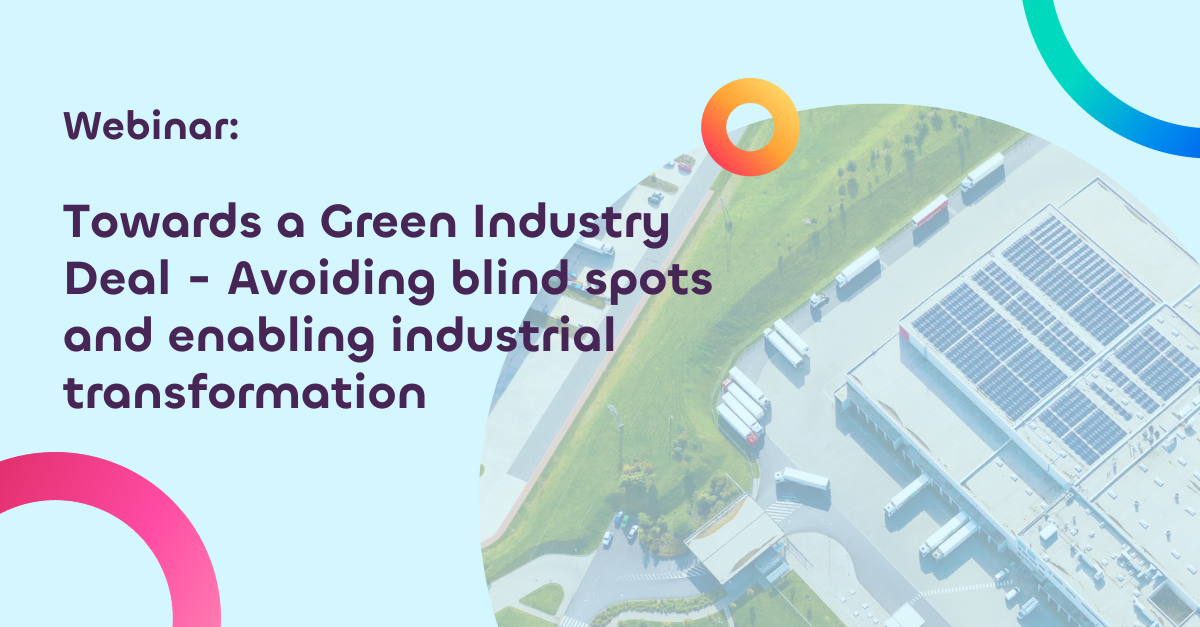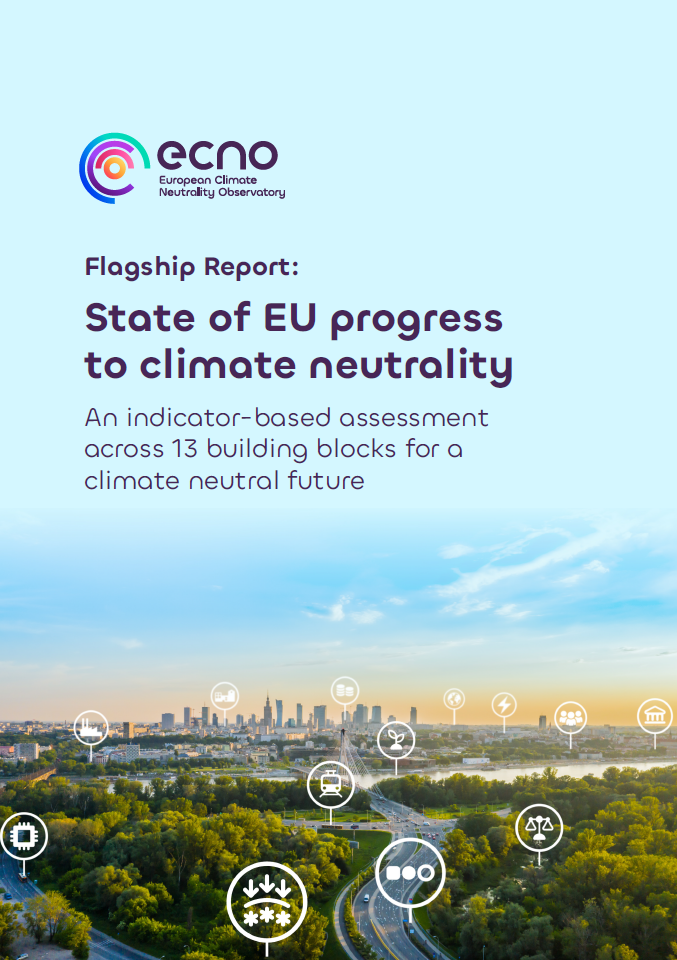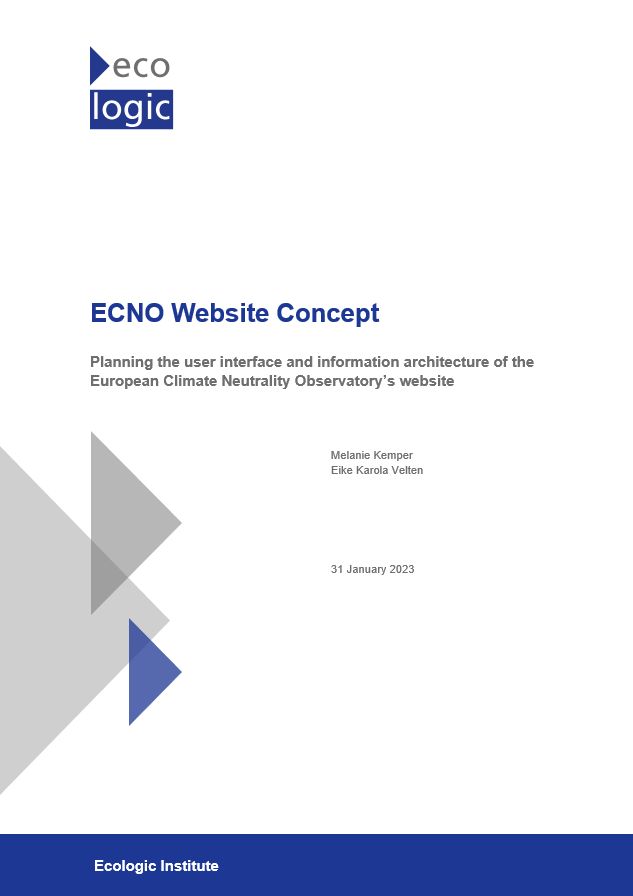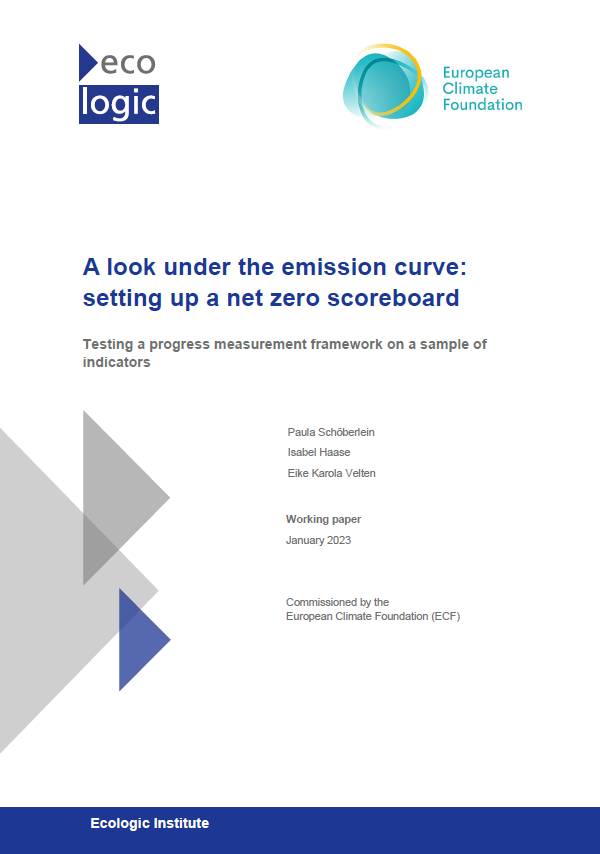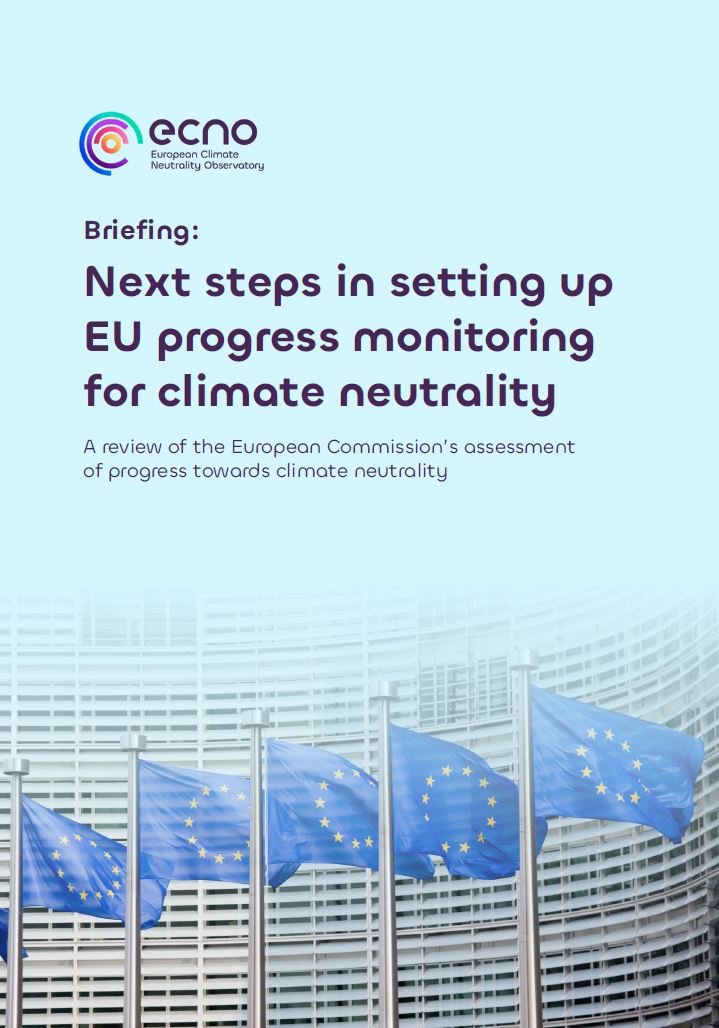2024 Report: State of EU progress to climate neutrality
An indicator-based assessment across 13 building blocks
- Publication
- Citation
Velten, Eike Karola et al. 2024: Flagship Report: State of EU progress to climate neutrality. An indicator-based assessment across 13 building blocks for a climate neutral future. European Climate Neutrality Observatory (ECNO).
The EU is making promising progress on the road to climate neutrality but needs to keep up the pace to achieve the goal. This is the result of the second progress report by the European Climate Neutrality Observatory (ECNO), which has analysed developments in over 100 indicators across all areas of society. The weak points identified provide crucial information for the work of the EU institutions.
The transition to climate neutrality is unfolding in nearly every corner of the EU economy. ECNO's 2nd comprehensive progress report reveals important and promising progress in individual indicators and in new and revised policies – but the overall pace remains too slow (see figure below). The analysis identifies bottlenecks and policy gaps that should be addressed by EU policy-makers in the new legislative term for 2024–2029.
ECNO's assessment methodology has been designed to reveal the pace of the transition in detail – within sectors and across them. It looks at specific objectives as well as enablers of the transition across 13 ‘building blocks’ of a climate neutral society, using a set of 124 indicators. Data trends are combined with an assessment of current developments in EU policy, enabling ECNO to provide a robust progress assessment and identify key areas for action for the upcoming policy cycle.
Promising signs of progress, but pace still too slow
In this year’s assessment, more than two thirds of the classified indicators are moving in the right direction, and many small-scale shifts are bubbling under the surface. EU climate policy has advanced significantly in many areas, most notably under the European Green Deal and the Fit for 55 package, as well as via crisis-response measures under REPowerEU. These policy changes promise further progress in indicators over time.
However, despite the individual improvements, all building blocks remained in the same progress category as in the 2023 assessment. And there are also contradictory signals. Faced with the energy crisis, for example, the EU and national governments adopted short-term measures that ran counter the transition, such as increased fossil fuel subsidies and investments in gas infrastructure. Furthermore, there are a few policy blind spots at EU level (e.g., regarding agrifood), where action is rather limited and key initiatives are yet to be adopted.
Overall, this means that while the transition is on its way, it needs to pick up speed to reach climate neutrality by 2050 at the latest.
Key policy actions in the next EU cycle can accelerate the transition to a competitive and just climate neutral Europe, such as:
• Advancing effective implementation of existing and recently agreed policies, especially at Member State level.
• Taking targeted additional action to unlock enabling conditions to the transition where needed.
• Aligning finance with the transition and close the investment gap.
• Applying a people-centred approach to EU policy that can ensure a socially just transition that has public support.
Read more in the full report or in the executive summary. Moreover, the ECNO website presents the details for each building block and contains interactive figures for many indicators.
